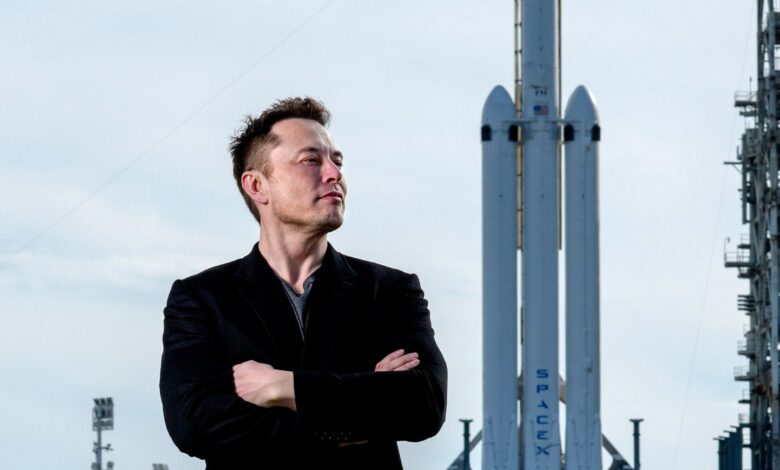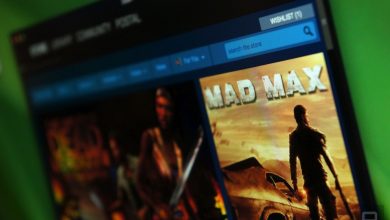If Elon Musk Had Been a Happy Child, Would He Still Be Launching Rockets?

I meet with Walter Isaacson in a small conference room in the offices of book publisher Simon & Schuster. The walls are festooned with framed covers, including of course Isaacson’s mega-bestseller Steve Jobs. I’m sure somewhere else in the office are covers representing his other subjects—Albert Einstein, Leonardo da Vinci, Jennifer Doudna—which together have earned him the sobriquet “biographer of genius.” It’s a unique and enviable shift in career focus for Isaacson, whose main gig for years has been as a top editor and administrator for Time Magazine, the Aspen Institute, and CNN. Now I am putting myself among his countless interlocutors ahead of an epic book tour for what might be his biggest book yet. It’s a forest-clearing doorstop of prose based on two years spent observing the man who is perhaps the world’s most ambitious pursuer of the future—one whose periodically wretched personality has made him an object of fear and scorn. Climate change notwithstanding, no one has sucked up more oxygen in the tech and business world than Elon Musk, and with this eponymous biography, Isaacson has made a case that all that attention is justified.
The biographer-subject bond between Isaacson and Musk seems predetermined. Musk, whose ego is interplanetary, was so eager to add himself to Isaacson’s bookshelf of geniuses that he tweeted the book project as a done deal minutes after an informal exploratory meeting. The leader of Tesla, SpaceX, Neuralink, The Boring Company, xAI, and X (“Twitter” had an insufficiently Bond-villain ring), gave his chosen Boswell unbelievable access. This allowed Issacson to share Musk’s secrets for getting things done when the US government and Detroit carmakers could not, including his inquisitorial cost-cutting regimen, dubbed “The Algorithm.” The 71-year-old legacy-media veteran spent hundreds of hours literally within arm’s reach of his subject, observing Musk as he destroyed launch pads, humiliated Tesla workers, and swung a wrecking ball at Twitter’s culture. Family members, ex-wives, and parenting partners shared their views, including frustrated complaints about Musk’s cruelty and impulsivity. One scene is straight out of a French farce: Unbeknownst to either of Musk’s parenting partners, both are in the same hospital, one giving birth to his twins and the other helping a surrogate deliver another fruit of his loins. (Among the many surprises in the book is that Musk and his sometimes-partner Grimes have a hitherto unannounced third child. Grimes, you held this back from me!)
I ask Isaacson if he was prepared for Musk experiencing what seemed like a meltdown during the real-time research on the book. Certainly, when the project began there was no way to know Musk would engage in a trainwreck takeover of Twitter, alienating users and advertisers and, more recently, seeming to blame it all on the Jews, even suing the Anti-Defamation League for noticing an explosion of anti-Semitism on the platform now called X. “For a lot of people, his tweets just put them over the edge,” says Isaacson. “Doing a tweet attacking the ADL is just wrong.” While Isaacson will call Musk out on specific horrors, his approach in the book is to present his research in 95 vignette-like chapters, each one a nibble of the larger narrative of Muskitude. He leaves it to readers to ultimately decide for themselves whether they should applaud or cancel Musk.
Having some exposure to so-called geniuses myself (a few of whom have actually earned the appellation), I have long pondered the question of what makes extraordinary people so extraordinary. Isaacson has derived his own answer. Yes, true genius involves blazing intellect, persistence, hard work, and good timing. But Isaacson always seems to uncover a darkness most often rooted in childhood—a rosebud. In case you’re not familiar with the term, it refers to the mysterious word uttered on the deathbed of the central figure in Orson Welles’ classic movie Citizen Kane. Spoiler alert: We learn in the last scene that it is the brand name of the sled that symbolized the protagonists’ last idyllic wisp of childhood before he was taken from his mother and cruelly thrust into a dog-eat-dog world where he became the meanest canine of all.
“You try to figure out what drives a person,” says Isaacson. “And for me or any biographer, it generally goes back to childhood. A lot of the people I write about are misfits.” In the biographical Isaacson-verse, Steve Jobs’ rosebud was that he was adopted and has spent a lifetime dealing with a perceived rejection from his birth parents. Einstein had to overcome growing up Jewish in 19th-century Germany, watching his father go bankrupt. Reaching back centuries, the biographer even dug up Leonardo da Vinci’s battered sled. “Leonardo is growing up in this village of Vinci as an illegitimate, left-handed gay, whose father refuses to legitimize him,” Isaacson says.
Musk’s rosebud is a feral childhood in South Africa, with a shockingly abusive father who still haunts the adult Elon. Friends, relatives, and Isaacson himself constantly remind us of Musk’s struggle not to become like the vicious anti-Semite, grifter, and step-daughter-impregnator Errol Musk. (It’s not going well on some fronts.) The Elon Musk that Isaacson presents to us is a Jekyll and Hyde character who veers between engaging visionary and bullying authoritarian with a penchant for fart jokes. In the scheme of Isaacson’s narrative, however, the worse Musk’s behavior gets, the more the book seems to argue that the misbehavior of the richest person in the world is simply a product of the wrongs done to him when he was in short pants. Inevitably, this winds up making Isaacson look like a defense lawyer asking for mercy for his client because of a troubled past. When I ask Isaacson whether, after all the time spent with Musk, he actually likes the guy, his answer is that it depends which Musk he’s with. Using a term from Grimes, he says that he saw many harrowing instances in which Musk went into “demon mode.” Others might object that past “demons” don’t determine someone’s current behavior—it’s the actual person who commits the devilry.
I mention to Isaacson the contrast between his biographical approach and that of, say, Robert Caro, the obsessive completist who wrote the classic bio of New York’s imperious masterbuilder Robert Moses and is currently struggling with volume five of his Lyndon Johnson project. If Caro were writing a Musk biography, it would be a toss-up whether he finished it before his subject flew off to Mars. Caro would probably spend a year in South Africa, get a graduate degree in rocket science, and take up deejaying to better understand Grimes. Whereas the Musk bio is a thick book of stories. Isaacson responds to the comparison by quoting his mentor, novelist and fellow New Orleanian Walker Percy, who told him that two types of people emerge from Louisiana—preachers and storytellers. “For heaven’s sake, be a storyteller,” Percy told him. “The world has too many preachers.”




